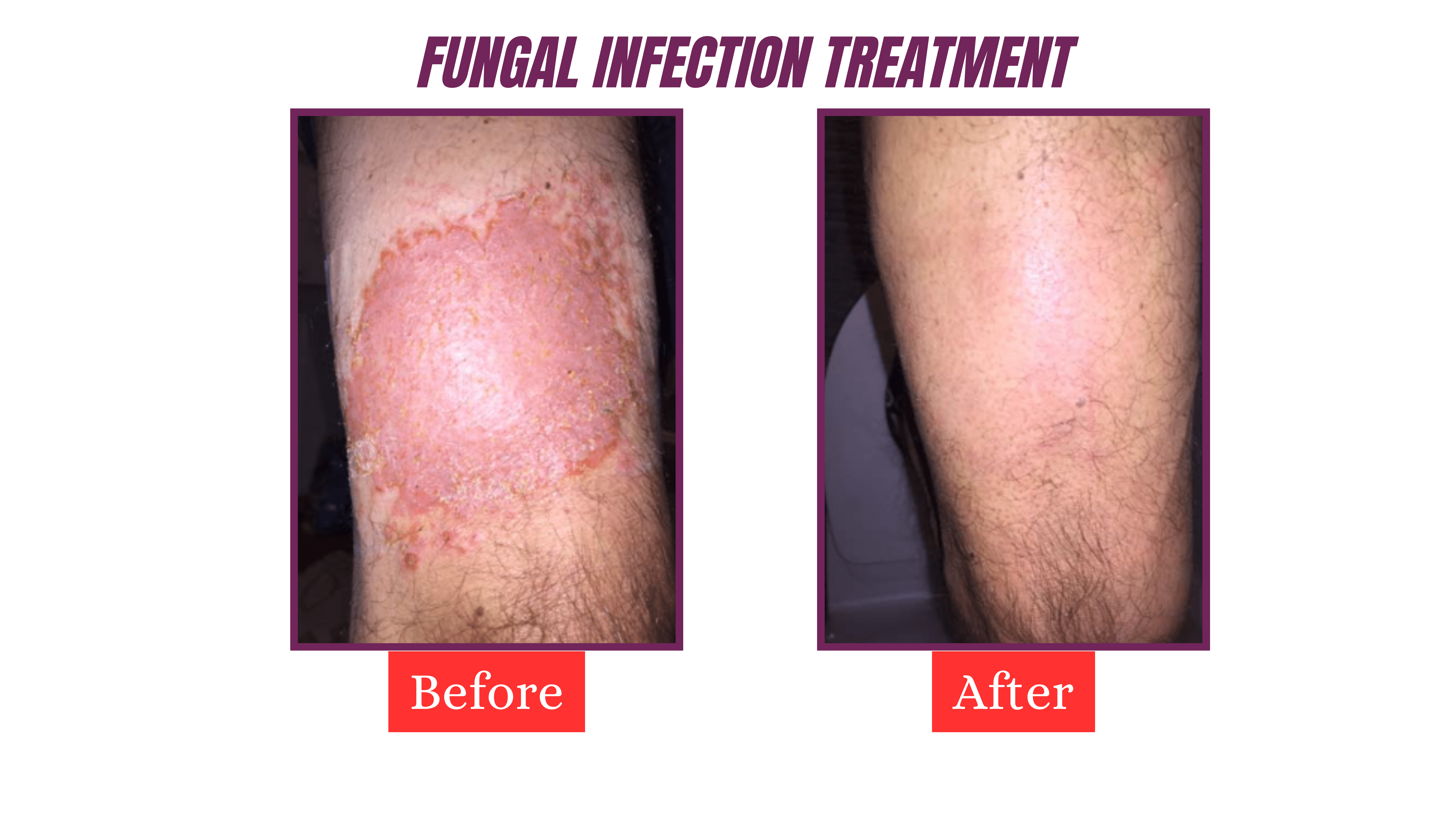Fungal Infection
Avoiding complex health issues such as allergy need to be identified during the early stages in order to experience the optimum results. Allergens and pollens cause major problems due to which proper health benefits are not realized.
Fungal infections can occur in various parts of the body, with Athlete's Foot and Ringworm being some of the most common types that affect many people. Seeking treatment from an experienced skin specialist is essential to manage these conditions effectively and avoid complications. With proper medical care, individuals can restore their skin's health and prevent the spread of infection.
By consulting a professional, you can ensure the best course of treatment tailored to your needs, helping you maintain healthy skin without facing complex issues. Advanced treatment options are available to address these concerns and keep your skin condition under control.
Treating fungal infections early is crucial for achieving the best results and preventing further complications. The success of the treatment largely depends on the methods and solutions used, so it is important to follow a proper skincare routine and consult a qualified specialist.
Effective treatment options include:
- Antifungal creams and sprays: These topical treatments help eliminate the fungal infection on the skin's surface.
- Antifungal medication: In some cases, oral medication may be necessary for more severe infections.
- Keeping the skin clean: Regular washing and drying of the affected area can help prevent the spread and growth of fungi.
Additional care steps to improve the treatment process:
- Using antifungal treatment consistently and following the specialist’s advice for the best results.
- Changing clothes regularly to maintain hygiene and prevent the infection from spreading to other areas of the body.
By seeking the right treatment under the supervision of an experienced skin care specialist, you can manage and eliminate fungal infections effectively, helping you restore your skin’s health and prevent future outbreaks.
Identifying the effects of fungal infection early will ensure that you maintain the ideal skin condition. Proactive treatment options that you prefer in an effective manner will let you organize your preferences without going through any major issues for sure.
Effects
- Complete effects upon skin
- Inflammatory skin condition with patches
Numerous causes have been identified that why fungal infections are known to bother people in general. Irrespective of the causes identified in a proactive manner, it is necessary that you realize the best treatment options providing you optimum benefits on the whole. Premium treatment options available in the case of fungal infection will help you in realizing comfort.
Causes
- Piling up of dead skin tissues and cells
- Itching of skin with the scaly condition
What is a fungal infection?
A fungus is a microscopic creature that can be as small as mold or mildew. Fungi are everywhere, including in the air, water, and even the human body. Approximately 50% of all fungus are harmful. If one of these toxic fungus comes into contact with your skin, it can cause a fungal infection, which can cause a rash or an itchy sensation.
How do fungal infections spread?
Fungal infections can spread by direct contact with an infected person, contaminated surfaces, or environmental exposure to fungus.
What are the symptoms of Fungal Skin Infections?
The following symptoms may indicate a fungal skin infection: - Irritation - Redness - Scaly Skin - Itching - Swelling - Blisters
What are the types of Fungal Infections?
Fungal skin infections can occur in many areas of your body. Some of the common types are- - Athlete's Foot (Tinea Pedis): This fungal illness, which is commonly transmitted, causes white, peeling skin between the toes and can also affect the soles. - Nail Fungus (Onychomycosis): This common infection, which affects toenails, causes yellow, thick nails that are prone to breaking. - Jock Itch (Tinea Cruris): This groin rash, which primarily affects men, is irritating and itchy. - Scalp Ringworm (Tinea Capitis): This rash, which is most common in children, causes hair loss, although adequate treatment usually results in hair regrowth. - Ringworm (Tinea Corporis): A generic word for rashes without a specific category, frequently forming rings on the skin.
Can toenail fungal infections be treated at home?
Mild to moderate cases of toenail fungal infections may respond to over-the-counter creams, but more severe cases frequently require prescription medications and careful nail care. For efficient treatment, it is best to consult with a dermatologist.
How to prevent fungal infections?
Great hygiene, keeping skin dry, avoiding sharing personal things, wearing breathable materials, and addressing underlying health issues are all preventive practices.
What are the symptoms of ringworm fungal skin infection?
Ringworm is identified by a red, circular, flat sore that may be accompanied by scaly skin. The skin on the outside of the sore may be elevated, while the skin in the center appears normal. Red rings or patches may overlap.
Can fungal infection be completely treated?
If left untreated, fungal infections normally do not go away. In fact, if they are not treated, they may spread or worsen.
How long does it take for a fungal infection to heal?
Itching and other symptoms of a fungal infection may disappear after a few days of treatment. Skin darkening and scaliness may take many weeks to cure completely.
Where does a fungal rash appear?
The rash can arise anywhere on the body, including the nails. It is more common in locations with skin folds, such as the groin, buttocks, or thighs.
Results

